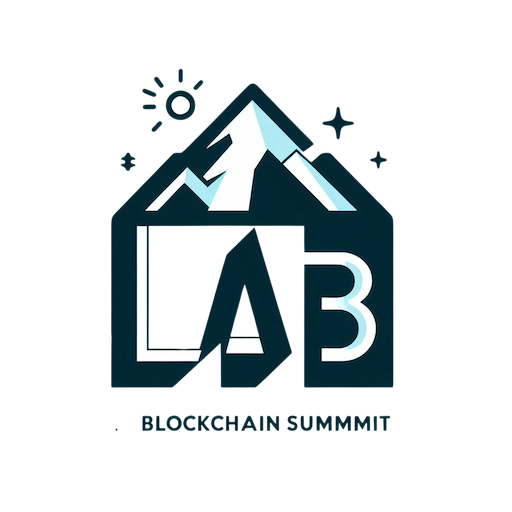
Ocean Protocol is reshaping how we think about data ownership and sharing. By leveraging blockchain technology, it ensures secure and transparent transactions between data providers and consumers. This not only maximizes the value of data but also democratizes access to it.
For businesses drowning in unused data or individuals worried about privacy, Ocean Protocol offers a solution. It addresses critical concerns like data security, monetization, and accessibility. If you’re curious about how blockchain can revolutionize your approach to handling information, find more insights here.
I first stumbled upon Ocean Protocol while exploring ways to monetize my datasets without compromising privacy. Let’s jump into its core features, benefits, and real-world applicationsâgiving you a comprehensive understanding of why it’s a game-changer in blockchain applications.
What Is Ocean Protocol?
Ocean Protocol is a blockchain-based platform designed for decentralized data exchange. It aims to make data more accessible and valuable by enabling secure sharing and monetization.
Imagine you have a highly valuable dataset, but you’re worried about privacy. Ocean Protocol allows you to share this data securely without losing control of it. You can set terms on how others use your data, ensuring transparency and security via blockchain technology.
One of the standout features of Ocean Protocol is its focus on data ownership. When you upload your dataset, you retain full control over it. You’re essentially leasing access rather than giving away ownership.
Benefits for Businesses
Businesses benefit greatly from using Ocean Protocol. For example:
- Security: Data remains encrypted and is only accessible under agreed terms.
- Monetization: Companies can earn revenue by leasing their datasets.
- Accessibility: Provides a marketplace where businesses can find and acquire high-quality data easily.
Real-World Applications
Consider healthcare research as an example. Researchers need access to large datasets but often struggle with privacy issues. With Ocean Protocol, they can access these datasets securely while respecting patient confidentiality.
Another example involves smart cities using IoT (Internet of Things) devices that generate tons of data daily. Cities can monetize this data through Ocean Protocol while maintaining control over who accesses it and how it’s used.
How It Works
Here’s a simple step-by-step process:
- Upload Data: The owner uploads the dataset to the Ocean network.
- Set Terms: They set conditions for accessing the data.
- Tokenize Data: The dataset gets tokenized, making it tradable in the marketplace.
- Purchase Access: Interested parties purchase tokens to gain temporary access based on predefined terms.
This method ensures that transactions are transparent and immutable, thanks to blockchain technology.
Encouraging Further Exploration
If you’re intrigued by what you’ve read so far, I encourage diving deeper into how Ocean Protocol could meet your specific needs or those of your business. Understanding its core features will empower you to leverage its capabilities fully in real-world applications.
Key Features Of Ocean Protocol
Ocean Protocol offers several unique features that make it a standout in the area of decentralized data exchanges. Let’s investigate into its core components.
Data Marketplace
The Ocean Protocol provides a robust data marketplace where users can buy and sell datasets securely. This marketplace functions similarly to e-commerce platforms but focuses on data instead of physical goods. Users upload their datasets, set access terms, and list them for potential buyers.
For example, researchers can sell anonymized health data to pharmaceutical companies looking for insights without compromising patient privacy.
Data Tokens
Data tokens play a crucial role in Ocean Protocol’s ecosystem. These tokens represent datasets and provide controlled access based on user-defined conditions. When you tokenize your dataset, you create digital assets that others can purchase or lease. Think of it as turning your data into valuable commodities like stocks or real estate properties. This tokenization ensures that you retain ownership while monetizing your asset.
Privacy & Security
Privacy and security are at the forefront of Ocean Protocol’s design. The platform uses advanced encryption techniques to protect data during transactions, ensuring that only authorized parties gain access.
For instance, if you’re sharing smart city IoT data, you control who sees what information through encrypted channels and permissions settings. This way, sensitive information remains confidential while still being monetized efficiently.
How Ocean Protocol Works
Ocean Protocol operates on a decentralized blockchain, providing secure and transparent data transactions. It establishes a marketplace where data providers and consumers can interact while maintaining control over their datasets.
Data Providers
Data providers upload datasets to the Ocean Protocol platform. They set access terms, such as price and usage conditions.
For example, a healthcare organization might offer anonymized patient records for research purposes. These datasets are tokenized into data tokens representing ownership and access rights. This process ensures that providers retain control over their data while monetizing it securely.
Data Consumers
Data consumers browse the Ocean Protocol marketplace to find relevant datasets for their needs. They purchase access using data tokens, which grant them specific permissions set by the provider.
An AI developer might buy weather data to improve predictive algorithms. The transaction is recorded on the blockchain, ensuring transparency and security.
Staking & Rewards
Users can stake OCEAN tokens to support dataset curation and earn rewards. Staking involves locking up tokens in smart contracts linked to specific datasets. If the dataset gains traction or proves valuable, stakers receive additional OCEAN tokens as a reward. This incentivizes high-quality data contributions and fosters community participation in the protocol’s ecosystem.
Ocean Protocol simplifies secure data exchange through its decentralized marketplace, benefiting both providers and consumers with transparency and control over transactions.
Use Cases And Applications
Ocean Protocol has numerous use cases that cater to different sectors, enhancing data sharing and monetization while maintaining control.
Healthcare Research
In healthcare research, Ocean Protocol helps maintain patient confidentiality. Researchers can access valuable datasets without compromising privacy. For instance, hospitals can tokenize anonymized patient records, allowing researchers to purchase access for studies. This method not only protects sensitive information but also generates revenue for healthcare institutions.
Smart Cities
Smart cities benefit from IoT-generated data by monetizing it through Ocean Protocol. City planners can tokenize traffic data or energy usage statistics. Interested parties like urban developers or utility companies then buy access to this data, aiding in more efficient city planning and service provision.
AI Development
AI development thrives on high-quality datasets. Ocean Protocol provides a secure marketplace where AI developers can find diverse datasets critical for training algorithms. For example, a tech startup needing facial recognition data could purchase tokenized datasets while ensuring the original owners retain control over their information.
Supply Chain Management
Supply chain management becomes more transparent with Ocean Protocol. Companies can tokenize logistics data, enabling stakeholders to track products in real-time securely. Retailers gain insights into product origins and delivery statuses without accessing proprietary company information directly.
Academic Research
Academic researchers often face challenges accessing necessary datasets due to privacy concerns or lack of availability. With Ocean Protocol, universities and research institutions can share tokenized academic databases securely. Students and educators purchase access tokens rather than acquiring ownership, facilitating broader academic collaboration.
Financial Services
Financial services use Ocean Protocol for secure data exchange between banks and financial institutions. Tokenizing transaction records or customer analytics allows firms to share insights without exposing sensitive client information fully.
- Tokenize Your Data: Start by uploading your dataset on the platform.
- Set Terms: Define who can access your data and under what conditions.
- Monetize Securely: Convert your dataset into tokens available for purchase.
- Engage Community: Stake OCEAN tokens to support quality content curation.
Pros And Cons Of Ocean Protocol
Let’s explore the strengths and weaknesses of Ocean Protocol to understand its impact on data sharing and monetization.
Pros
- Decentralized Data Exchange
Ocean Protocol leverages blockchain technology to create a decentralized marketplace for data. This ensures that transactions are transparent, secure, and tamper-proof. Users can trust that their data is handled responsibly, thanks to the immutable nature of blockchain. - Data Ownership Retention
Users retain ownership of their datasets rather than handing them over completely. For instance, businesses can lease access to valuable customer data without losing control over it. This approach maintains privacy while enabling monetization. - Security And Privacy
Advanced encryption techniques protect sensitive information during transactions. In healthcare research, anonymized patient data can be shared securely for studies without risking confidentiality breaches. - Monetization Opportunities
Ocean Protocol enables users to tokenize their datasets, creating new revenue streams. A smart city could monetize IoT-generated traffic data by selling access tokens to urban planners or developers interested in analyzing traffic patterns.
Cons
- Complexity For Beginners
While powerful, Ocean Protocol’s technology might seem daunting for those new to blockchain or tokenization. Exploring decentralized platforms requires some learning curve which might deter beginners from fully utilizing its features. - Market Adoption Challenges
Widespread adoption takes time as businesses and individuals need convincing about the benefits of decentralized data exchanges. Until then, finding buyers or sellers in the marketplace may pose a challenge due to limited participants. - Regulatory Uncertainty
Blockchain-based platforms like Ocean Protocol operate in evolving regulatory environments. Compliance with varying global regulations can be complicated which may impact operations depending on regional policies concerning data privacy and digital assets.
Ocean Protocol And Decentralization
Ocean Protocol stands out because it decentralizes data sharing. It uses blockchain technology to ensure secure and transparent transactions. For beginners, think of it as a way to safely share your data without losing control. You don’t give away your data; you lease access to it.
A key feature is its decentralized marketplace. This platform lets users buy and sell datasets securely, much like shopping online but for data. By using blockchain, it guarantees every transaction is transparent and tamper-proof.
Let’s consider some real-world applications. In healthcare, researchers can access anonymized patient data without breaching confidentiality laws. This helps advance medical science while keeping patient info private. Another example is smart cities using IoT-generated data for urban planning without exposing sensitive information.
For those new to blockchain, here’s a simple guide on how to use Ocean Protocol:
- Upload Data: Start by uploading your dataset to the platform.
- Set Access Terms: Decide who can access your data and under what conditions.
- Tokenize Dataset: Convert your dataset into data tokens that represent ownership and access rights.
- Sell Access: Make these tokens available in the marketplace for interested parties.
This process ensures you retain control over your data while monetizing it effectively.
If you’re worried about security, Ocean Protocol has advanced encryption techniques that keep your information safe during transactions.
Summarizing, Ocean Protocol offers a decentralized solution for secure data exchanges, benefiting both providers and consumers with transparency and control over their transactions.
Key Takeaways
- Decentralized Data Exchange: Ocean Protocol utilizes blockchain technology to create a secure, transparent marketplace for data sharing and monetization.
- Data Ownership and Control: Users retain full control over their datasets, allowing them to lease access rather than relinquish ownership.
- Monetization Opportunities: The platform enables users to tokenize their data, opening new revenue streams by selling access tokens while maintaining data security.
- Real-World Applications: From healthcare research to smart city planning, Ocean Protocol facilitates secure and private data sharing across various sectors.
- Enhanced Security: Advanced encryption techniques ensure that sensitive information remains protected during transactions.
Ultimately
Ocean Protocol revolutionizes how we handle data by promoting secure sharing and monetization while ensuring users retain ownership. Its decentralized architecture provides a transparent marketplace where transactions are both tamper-proof and efficient. By tokenizing datasets, users can monetize their information without compromising privacy.
This innovative approach benefits various sectors from healthcare to smart cities by maintaining confidentiality and enhancing research capabilities. While beginners might face some complexity the rewards of mastering Ocean Protocol’s features are substantial.
To explore how this game-changing protocol can transform your data practices I highly recommend diving into its official documentation. Embrace the future of secure data-sharing with Ocean Protocol and unlock new opportunities for innovation and growth.
